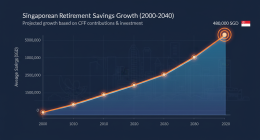Thailand Faces Rising Demand for Elderly Care
Over 7.5 Million Elderly Affected by Chronic Non-Communicable Diseases
In Thailand, the alarming rise in chronic non-communicable diseases (NCDs) among the elderly has led to a pressing demand for additional care managers. Public Health Minister Somsak Thepsutin announced that more than 7.5 million elderly individuals are currently suffering from various NCDs, necessitating the recruitment of 14,000 new care managers by 2030 to adequately address this growing health crisis.
The Aging Population and Its Challenges
Transitioning to a Fully Aged Society
Thailand is experiencing a demographic shift, with approximately 21% of its population—around 14 million people—classified as elderly. This transition into a fully aged society presents significant challenges, particularly as advancements in medical technology enable longer lifespans but also contribute to an increase in chronic health conditions.
The Impact of Non-Communicable Diseases
Prevalence of Major Health Issues Among the Elderly
The statistics surrounding NCDs are concerning: 4.6 million elderly individuals suffer from hypertension, 2.1 million from diabetes, and significant numbers are affected by strokes and cardiovascular diseases. These conditions not only lead to increased healthcare costs but also result in complications such as vision impairment, mobility issues, and cognitive decline.
Projected Workforce Needs
Future Demand for Care Managers
To combat these challenges, Minister Somsak has projected that Thailand will require a total of 37,000 elderly care managers by 2030. Currently, there is a shortfall of over 14,000 personnel, highlighting the urgent need for enhanced training and development within the healthcare workforce to ensure quality care for the aging population.
Innovations in Elderly Care
Forum Focuses on Strategies for Improvement
The recent 5th Thailand Elderly Health Service Forum, attended by over 1,000 participants, including health officials and academics, showcased over 100 expert speakers and 40 exhibitions aimed at discussing innovative strategies for improving elderly care across various sectors. This forum emphasized the importance of collaboration and innovation in addressing the needs of Thailand’s aging population. By recognizing the critical role of care managers and investing in their training, Thailand can better support its elderly citizens facing chronic health challenges.









